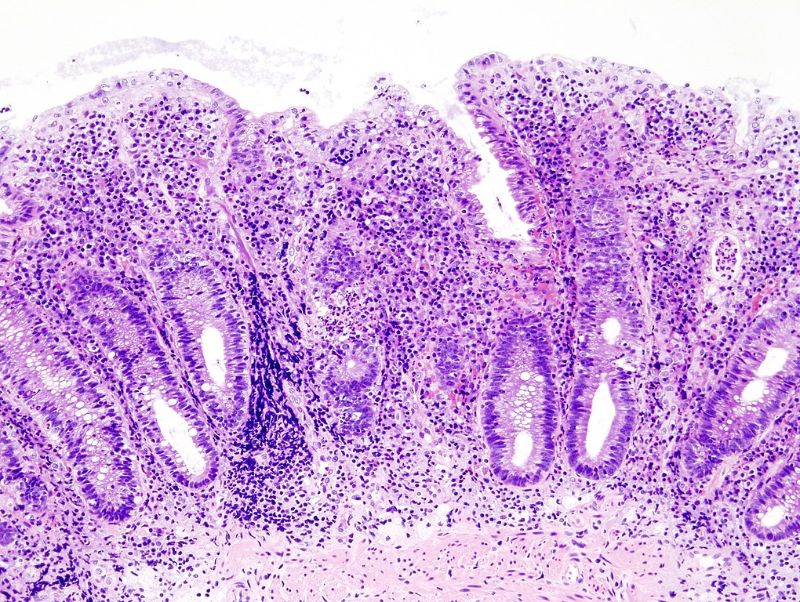
Gilead Sciences and Galapagos have reported positive top-line results from the Phase IIb/III SELECTION clinical trial of filgotinib for the treatment of moderately to severely active ulcerative colitis (UC).
The randomised, double-blind, placebo-controlled study assessed the safety and efficacy of the drug, a JAK1 inhibitor, in 1,348 biologic-naïve or biologic-experienced adult patients.

Discover B2B Marketing That Performs
Combine business intelligence and editorial excellence to reach engaged professionals across 36 leading media platforms.
Data showed that the 200mg dose of the drug reached all primary endpoints, inducing clinical remission at week 10 and maintaining the remission at week 58 in a significantly higher proportion of patients versus placebo.
However, the 100mg dose of the drug failed to show statistically significant clinical remission at week 10.
Gilead Sciences chief medical officer Merdad Parsey said: “Patients with moderate to severe ulcerative colitis can struggle to effectively manage their disease.
“These topline data suggest that filgotinib could play a role in helping more patients achieve a meaningful and sustained improvement in treatment response with an oral therapy.”

US Tariffs are shifting - will you react or anticipate?
Don’t let policy changes catch you off guard. Stay proactive with real-time data and expert analysis.
By GlobalDataPatients with clinical response or remission after ten weeks of treatment with 100mg or 200mg were re-randomised to their induction dose of filgotinib or placebo and treated through week 58.
Both doses reached the primary endpoint in this maintenance trial. At week 58, 37.2% of biologic-naïve and biologic-experienced patients on filgotinib 200mg experienced clinical remission, compared to 11.2% on placebo.
Around 23.8% of participants on the 100mg dose achieved clinical remission at week 58, versus 13.5% on placebo.
Galapagos chief medical officer Dr Walid Abi-Saab said: “We believe that the results point to an efficacy and safety profile consistent with prior studies with filgotinib, and offer a meaningful contribution to the patient data with filgotinib from other inflammatory conditions.”
Filgotinib is being studied in multiple trials for the treatment of different inflammatory conditions.





